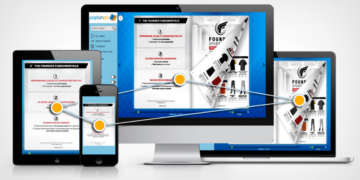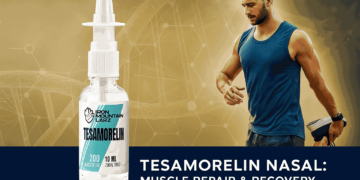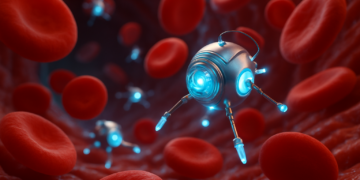You know, not many people really think about how big a role infections play in healthcare. We always talk about surgeries, heart problems, or accidents, but infections… they quietly cause so much trouble. I mean, even a small one can turn serious if not handled right. That’s where a Fellowship in Infectious Diseases comes in – it’s for doctors who want to dig deep into this part of medicine and really learn how to fight infections the smart way.
Introduction
So, let’s start simple. A fellowship in infectious diseases is basically a special training program after your MD or DNB – mostly for those from Internal Medicine or Pediatrics backgrounds. It’s for doctors who want to become experts in identifying, treating, and preventing all kinds of infections – viral, bacterial, fungal, you name it.
And honestly, it’s a fascinating field. You get to understand how tiny microbes can cause such big problems, and how the right treatment or prevention method can save lives. It’s not just about prescribing antibiotics – it’s about knowing why and when to use them.
Program Duration and What It’s Like
Most of these fellowships last around two years, give or take depending on the institute. It’s a mix of clinical work, theory, and some research too. You’re not just sitting in classes – you’re in hospitals, labs, and sometimes even helping during outbreaks.
Here’s what usually happens during the program:
- Clinical training: You’ll handle real patients with all kinds of infections. Some common, some rare, and some that’ll really make you think.
- Lab work: You’ll spend time in microbiology labs learning how to read reports, cultures, and test results – things that are vital for correct diagnosis.
- Infection control: This part is about stopping infections before they spread – especially in hospitals. You’ll learn hygiene practices, protocols, and outbreak management.
- Research: Most programs ask you to take up a small research project. Could be about antibiotic resistance, a new diagnostic method, or a study on local infection trends.
To be fair, it’s busy work – but you learn something new almost every day.
What You Actually Learn
Throughout the fellowship, you pick up a ton of knowledge and skills. Not just about diseases, but about people and systems too. You’ll go through stuff like:
- HIV and other viral infections
- Tuberculosis and other chronic bacterial infections
- Hospital-acquired infections
- Tropical and travel-related illnesses
- Antimicrobial resistance and its control
- New and emerging infections like COVID-19 or Nipah virus
[ Read Must: Why Critical Care Echocardiography Skills Matter Today ]
By the end of it, you’ll be able to handle both simple infections and complex, confusing cases with confidence.
Why It’s So Important
Let’s be honest – after the pandemic, we’ve all realized how serious infectious diseases can get. One small outbreak can shut down entire cities, right? So having trained specialists who know what to do in such situations is extremely important.
Doctors who do this fellowship become the go-to experts in hospitals when things get tricky. They’re the ones who figure out why a patient isn’t getting better or how to stop infections from spreading inside hospitals. And beyond that, they often work with public health teams or even help shape national health policies.
Career Options After the Fellowship
Now, you might wonder what happens after finishing this fellowship. Well, quite a lot actually.
- You can work as an Infectious Disease Consultant in hospitals – dealing with complex infection cases.
- Or you can move into public health, working with health departments or global organizations like WHO.
- Some go into research and teaching, helping train the next generation of doctors.
- Others become infection control officers, making sure hospitals stay clean and safe.
The best part is, this field isn’t going anywhere. If anything, the demand is growing every year because of antibiotic resistance and new diseases popping up.
Skills You’ll Build
It’s not just about medical facts – this fellowship teaches you how to think. You learn to stay calm under pressure, analyze situations quickly, and make smart decisions.
You’ll get better at:
- Diagnosing complex infections
- Using antibiotics wisely
- Communicating clearly with patients and colleagues
- Understanding research and data
Honestly, by the end of it, you’re not just a doctor – you become a problem-solver.
Who Can Apply
Most programs want doctors who’ve done MD or DNB in Internal Medicine, Pediatrics, or related subjects. You’ll need a valid medical registration and some hospital experience. Some institutes also do interviews or small entrance exams, but the main thing is – you should be genuinely interested in infections and patient care.
Why You Should Consider It
If you like figuring things out, if you enjoy solving medical puzzles, then this field is perfect. It’s a mix of science, logic, and real-life detective work. Every case is different. One day it’s a rare fungal infection, the next day it’s a common fever that turned serious because of resistance.
And to be fair, it’s not just about your career – it’s about impact. You’ll be doing work that really matters. Preventing infections, saving lives, protecting communities – that’s a pretty big deal.
The Future of Infectious Disease Medicine
The way things are going, this field is only going to grow. With antibiotic resistance rising and new diseases emerging, the world will always need experts who understand infections deeply.
There’s so much happening in vaccine development, new drugs, and advanced diagnostics. If you’re part of this field, you’ll be right in the middle of it – helping shape the future of medicine.
I mean, it’s a tough job sometimes, but it’s also one of the most rewarding ones out there.
Conclusion
So yeah, a Fellowship in Infectious Diseases is not just another medical course – it’s a full journey into understanding how infections work, spread, and can be controlled. It’s for doctors who want to do something meaningful, not just routine.
By the time you finish, you’ll not only have advanced knowledge but also the confidence to lead during critical medical situations. Whether you work in hospitals, labs, or public health, you’ll be making a difference – every single day.
FAQs
1. Who can apply for this fellowship?
Doctors who’ve done MD or DNB in Internal Medicine, Pediatrics, or similar fields.
2. How long is it?
Usually two years, but can vary depending on where you do it.
3. What kind of work can I do after it?
Consulting, teaching, infection control, research, or even public health roles.
4. Is it worth it?
Definitely. Infectious diseases are a growing field with real demand everywhere.
5. Does it include research work?
Yes, most programs include research as part of training.
[Also Read: Comprehensive Guide to Emergency Medicine Fellowship]

















